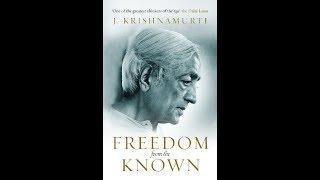Osho - Everything is a joke
Rajneesh (born Chandra Mohan Jain; 11 December 1931 – 19 January 1990), also known as Acharya Rajneesh, Bhagwan Shree Rajneesh, and later as Osho, was an Indian godman, mystic, and founder of the Rajneesh movement. During his lifetime, he was viewed as a controversial new religious movement leader and a mystic guru. He rejected institutional religions.
Rajneesh's teachings, delivered through his discourses, were not presented in an academic setting, but interspersed with jokes. The emphasis was not static but changed over time: Rajneesh revelled in paradox and contradiction, making his work difficult to summarise. He delighted in engaging in behaviour that seemed entirely at odds with traditional images of enlightened individuals; his early lectures in particular were famous for their humour and their refusal to take anything seriously. All such behaviour, however capricious and difficult to accept, was explained as "a technique for transformation" to push people "beyond the mind".
He spoke on major spiritual traditions including Jainism, Hinduism, Hassidism, Tantrism, Taoism, Sufism, Christianity, Buddhism, on a variety of Eastern and Western mystics and on sacred scriptures such as the Upanishads and the Guru Granth Sahib. The sociologist Lewis F. Carter saw his ideas as rooted in Hindu advaita, in which the human experiences of separateness, duality and temporality are held to be a kind of dance or play of cosmic consciousness in which everything is sacred, has absolute worth and is an end in itself. While his contemporary Jiddu Krishnamurti did not approve of Rajneesh, there are clear similarities between their respective teachings.
Rajneesh also drew on a wide range of Western ideas. His belief in the unity of opposites recalls Heraclitus, while his description of man as a machine, condemned to the helpless acting out of unconscious, neurotic patterns, has much in common with Sigmund Freud and George Gurdjieff. His vision of the "new man" transcending constraints of convention is reminiscent of Friedrich Nietzsche's Beyond Good and Evil; his promotion of sexual liberation bears comparison to D. H. Lawrence and his "dynamic" meditations owe a debt to Wilhelm Reich.
- Category
- Osho


